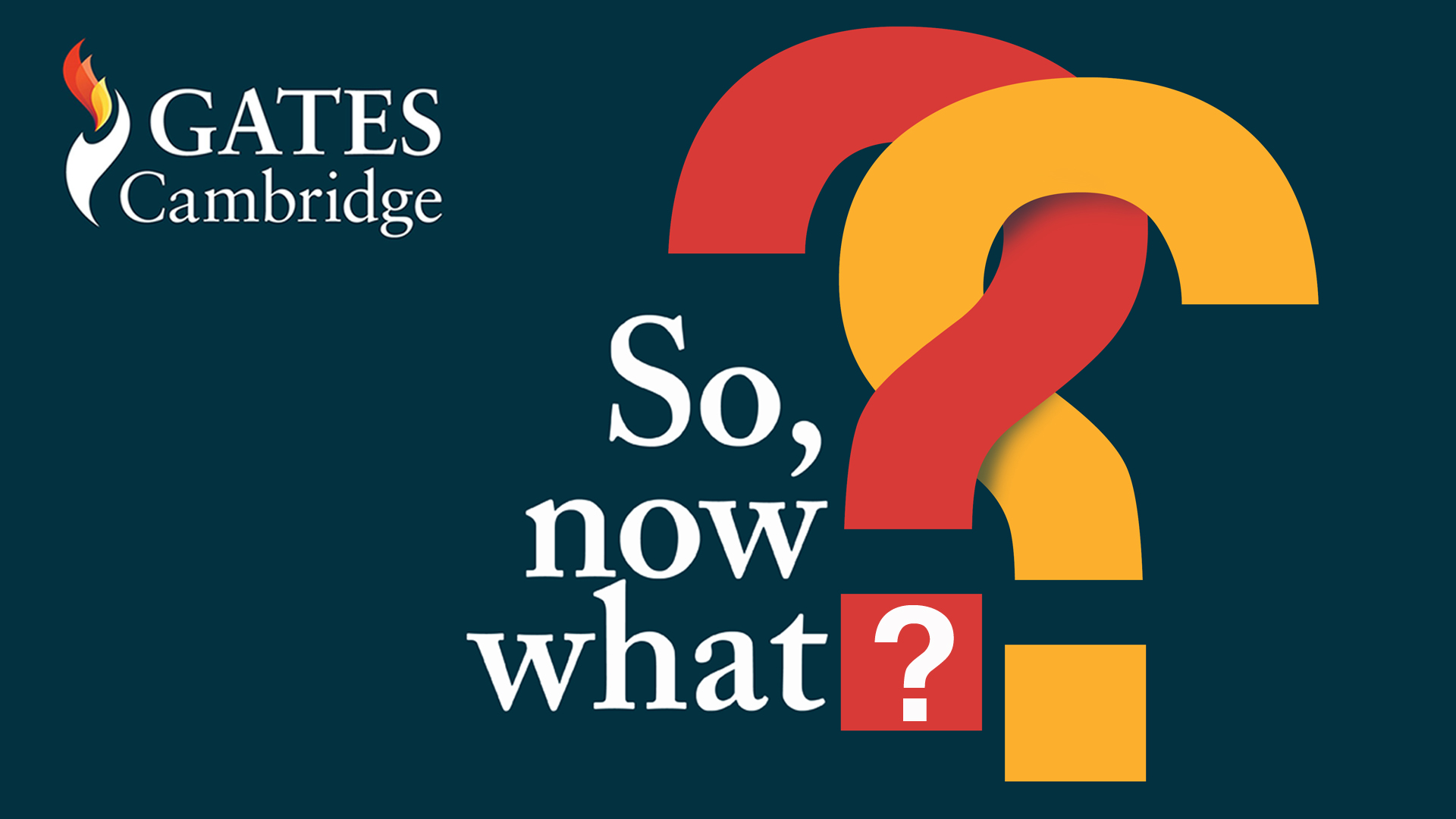
The new monthly podcast will cover eight different areas, from climate economics to global healthcare.
We are very excited to be bringing people a flavour of some of the stimulating, multidisciplinary conversations that Gates Cambridge has enabled and to celebrate the impact that our scholars are having when it comes to tackling some of the world’s toughest issues today.
Professor Eilis Ferran
Gates Cambridge is launching its first official podcast next week. So, now what? is for anyone looking for ideas, vision and optimism about how we can practically tackle some of the world’s most complex and challenging problems. Scholars from a range of different backgrounds and disciplines will share the actions they are taking to change the world for the better.
The podcast will focus on impact in eight different areas, from economics and environment to culture and global health. Each episode will see scholars in conversation with each other about a wicked global problem, hosted by international journalist Catherine Galloway. It will end with the question So, now what? – with scholars suggesting ways we can all contribute to moving the dial away from despair and towards the kind of practical action that will make a positive difference.
A short trailer launches today and will be followed on Tuesday [30th January] by episode one with guests Kamiar Mohaddes [2005], Associate Professor in Economics & Policy at the Judge Business School at the University of Cambridge, Todd Tucker [2012], director of Industrial Policy and Trade at the Roosevelt Institute, and Queen Chinyere Quinn [2010], Co-Founder and Partner at pan-African investment platform Kupanda Capital.
Following on from the World Economic Forum in Davos, they will be discussing climate economics and answering the question: How do we build back better after crisis? The podcast tackles the need for collaboration, the costs and risks of climate change and the role of innovation and people power in driving change. The speakers also highlight the importance of political will and financing in achieving sustainable recovery and building a more equitable and resilient future.
So, now what? will air on the last Tuesday of the month until August. February’s episode – launching on 27th February – will be on the question of what is education for? and includes best-selling author Tara Westover [2008], Thabo Msibi [2009], th at the University of Kwa-Zulu Natal and Aliya Khalid [2015], Lecturer in Comparative and International Education at the University of Oxford.
Professor Eilis Ferran, Provost of the Gates Cambridge Trust, said: “We hope people will enjoy and be inspired by So, now what? We are very excited to be bringing people a flavour of some of the stimulating, multidisciplinary conversations that Gates Cambridge has enabled and to celebrate the impact that our scholars are having when it comes to tackling some of the world’s toughest issues today.”
* You can listen to the first episode here:
.
For more information and other episodes click here.












